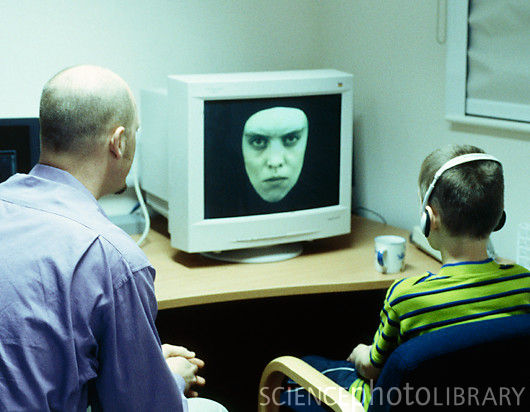The Centers for Disease Control and Prevention (CDC) announced on Thursday that, since 2009, there has been a 23% increase in the diagnosis of autism-related disorders among children, and a 78% increase in the diagnosis since 2007.
On the same day, the Department of Health and Human Services (HHS), headed by Kathleen Sebelius, also announced 15 new members of the Inter-agency Autism Coordinating Committee (IACC). The IACC is a federal advisory committee charged with coordinating all efforts concerning Autism Spectrum Disorder (ASD), a continuum of disorders marked by social impairment and repetitive behaviors, within HHS and developing a strategic plan for ASD within the nation.
Though public health officials and mental health practitioners say there could be any number of reasons for the sharp increase in the diagnosis of autism, both admit that the increase is at least partly due to a tendency to label children at a much younger age, as well as an expansion of the diagnostic category to include children who may not meet all the criteria of the most extreme form of autism.
This situation develops as the American Psychiatric Association is about to release, next year, its fifth edition of the Diagnostic and Statistical Manual (DSM-V), the primary system used by mental health practitioners to classify and diagnose mental disorders. The DSM-V has created controversy due to its inclusion of “new” psychiatric disorders and its less restrictive criteria in some diagnostic categories, leading even some within the mental health field to question, somewhat humorously, whether everyone will now have a mental disorder.
With regard to autism, the new DSM-V has created significant controversy within the mental health field, with some arguing that less children will be diagnosed with the disorder, and others asserting that children with minor problems will now be classified as “autistic.” The new manual will likely employ one set of criteria that will include all subtypes of autism-spectrum disorders, including Asperger’s Syndrome, and Pervasive Developmental Disorder (PDD), a “catch all” label for various often minor issues that are sometimes difficult to categorize elsewhere, along with the more extreme forms of autism.
Regarding the sharp rise in the number of cases of autism, Dr. Thomas Frieden, director of the CDC, said, “People want answers to what’s causing autism and to why we’re seeing such an increase in identified cases.” He said that the data show that “many children are not receiving services early enough or not consistently enough to help them reach their full potential.”
Indeed, there are many questions about the increase in diagnosed cases of autism, and other childhood mental health disorders, such as Bipolar Disorder and Attention Deficit Disorder, not the least of which involve the support of the American Psychiatric Association, the American Psychological Association, the American Academy of Pediatrics, and the Pharmaceutical Research and Manufacturers of America support of ObamaCare. The law’s directives and even mandates would assure provider reimbursement, at tax-payer expense, for increased treatment of psychiatric disorders. However, what the law cannot guarantee is the treatment itself. With sharp jumps in diagnostic cases, and already limited numbers of mental health professionals with expertise in specified areas, such as autism and child psychiatry, the thought of parents having to wait even longer to get their child in to see a practitioner is painful.
Then, there is the matter of the potential conflict of interest between those on the DSM-V task force panel, professionals charged with the development of the new manual, and the pharmaceutical industry. A study of this relationship, enabled by the fact that greater financial disclosure among task force members was required for inclusion in the panel, has found that 69% of the DSM-V task force members report having ties to the pharmaceutical industry, about a 21% increase over task force members of the DSM-IV. This outcome suggests the possibility that members of the panel for the new manual, which now may lead to greater probability of labeling patients with a psychiatric disorder that could be treated with medication, may have been affected by their financial relationships with drug companies while drafting the manual.
The diagnosis of autism for the parents of young children can be devastating when we consider the emotional and financial stresses related to obtaining special services for a child. The potential conflicts involved in government picking and choosing specialty areas and industries, based on mutual support, as well as inter-industry financial conflicts of interest, create only more difficulties and raise more questions for families already struggling with a child who needs services. Continued efforts to remove, rather than increase, government regulation from health care–to increase competitiveness, rather than encourage monopolies in health care markets, and to offer tax credits to individuals who purchase their own health insurance, just as employers receive today–are the best ways to provide greater assurance for parents as they meet their children’s health care needs.

COMMENTS
Please let us know if you're having issues with commenting.